2021
December
December 15, 2021
Northwestern Buffett recently sat down with Khantey Lim (McCormick, ’23) to discuss her experiences finding her niche and blazing new trails at Northwestern as an international student.
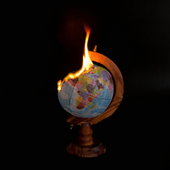
December 14, 2021 – from Group of Nations G7/G20 Global Briefing Report
Northwestern Buffett Executive Director Annelise Riles and U7+ Alliance presidential delegates from the University of Toronto and University of Edinburgh discuss the U7+ Alliance of Universities commitment to climate action in the October 2021 Group of Nations G7/G20 Global Briefing Report.
December 2, 2021 – from Youtube
As a post-COP26 event, Northwestern Buffett hosted a Fireside Chat with Senator Tammy Duckworth on December 2. Senator Duckworth talked about her leadership in the Senate on issues of climate justice affecting underserved communities, as both a founding member of the Senate’s Environmental Justice Caucus and sitting member of the Senate Democrats’ Special Committee on the Climate Crisis.
November
November 17, 2021
October
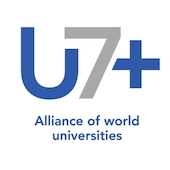
October 28, 2021 – from Northwestern Now
The U7+ Alliance of World Universities issued a statement on October 25 declaring their commitment to supporting the implementation of climate goals coming out of the COP26 conference in Glasgow. The presidents of 29 universities from 12 countries voted to adopt the commitments set forth in the statement, recognizing that "climate change is a global challenge that presents serious threats to natural environments, human health, security and economic stability.”

October 25, 2021 – from U7+ ALLIANCE OF WORLD UNIVERSITIES
August

August 30, 2021
This year marks the 15th anniversary of GlobeMed, a Northwestern Buffett-supported student organization dedicated to mobilizing students and grassroots leaders to improve public health worldwide. Originally founded in 2006 by a group of Northwestern students seeking opportunities to contribute to global health equity, GlobeMed has grown into a network of thousands of students across 36 university-based chapters throughout the United States as well as grassroots organizations in Africa, Asia and the Americas.
July
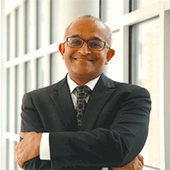
July 12, 2021
Renowned cybersecurity and counterterrorism expert V.S. Subrahmanian will join the Northwestern Engineering faculty on September 1, 2021 as Walter P. Murphy Professor of Computer Science with a joint appointment as faculty fellow at the Northwestern Roberta Buffett Institute for Global Affairs.
June

June 24, 2021
The Northwestern Roberta Buffett Institute for Global Affairs and Weinberg College of Arts and Sciences are pleased to welcome Dr. Vilna Bashi as Weinberg College’s Osborn Professor of Sociology and as a Northwestern Buffett Institute Faculty Fellow as of the 2021-22 academic year.

June 17, 2021
Attention Northwestern students. Are you curious, creative and action-oriented? Are you eager to connect with other students from across the globe, learn lifelong skills, and make a positive impact on global challenges? If so, apply now to be a Northwestern Student Delegate to the U7+ Worldwide Student Forum 2021: Climate Change–Intergenerational Conflict or Intergenerational Alliance?

June 17, 2021
In this Northwestern Buffet "Building Sustainable Futures: Global Challenges and Possibilities" webinar, learning scientist Nichole Pinkard and Chicago Medal of Honor Recipient Natasha Smith-Walker shared examples and frameworks based upon lessons learned in a multi-year collaboration to reimagine partnerships with the community and civic institutions to build pathways and on-roads to STEM in ways that connect to the community. Austin serves as the demonstration community leveraging community value holders (parks, community-based organizations, schools, etc.)
June 4, 2021
A Northwestern Buffett Global Working Group including researchers from 10 disciplines across eight Northwestern University Schools along with experts from the World Wildlife Fund, Nature Conservancy and Argonne National Lab are working to identify creative approaches to addressing some of the world’s most pressing environmental challenges.
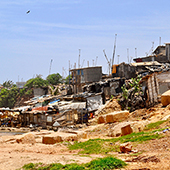
June 1, 2021
Survey evidence from 16 developing countries shows widespread employment loss and declines in income and food security since the onset of the COVID-19 pandemic. These patterns are apparent in Ghana. In this Northwestern Buffett "Building Sustainable Futures: Global Challenges and Possibilities" webinar, Chris Udry, professor of Economics at Northwestern University, and Robert Darko Osei, vice dean for the School of Graduate Studies at the University of Ghana, discussed the dynamic effects that COVID lockdown policies have had on employment and show how substantial, randomized mobile money transfers to individuals in poor households affected social distancing, food security, and work patterns.
May
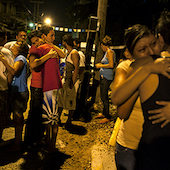
May 7, 2021
In this Northwestern Buffett "Building Sustainable Futures: Global Challenges and Possibilities" webinar, Northwestern University associate professor of History Lina Britto was joined by journalist and author of Drug War Capitalism Dawn Marie Paley to break down dominant myths around narcotrafficking and the war on drugs in Mexico and Colombia.
April
April 28, 2021
Northwestern Professor of Law Erin Delaney and Northwestern Assistant Professor of Sociology Beth Redbird will join forces to study the power processes that have shaped tribal constitutions with the support of an almost $400,000 grant from the National Science Foundation (NSF).
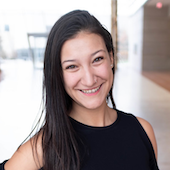
April 28, 2021
Northwestern Buffett recently connected with international student Maria Beatriz Rocha (Weinberg, '22), who shared her experiences at Northwestern and how they’ve shaped her interests.
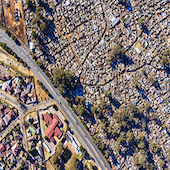
April 22, 2021
In this Northwestern Buffett "Building Sustainable Futures: Global Challenges and Possibilities" webinar, using the advent of the Africa Continental Free Trade Area (AfCFTA) as a backdrop, Dr. Amara Enyia, Managing Director of Diaspora Rising, explores issues related to historically exploitative trade and economic practices in Africa and the Caribbean. Dr. Amara examines systems being built around the world—in part due to COVID-19 and in part due to skyrocketing inequality—that highlight how those dynamics are shifting, how new post-COVID trade agreements can evolve, and how countries are leaning in to notions of self-sufficiency and self-determination.
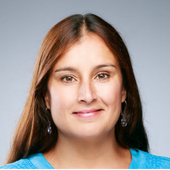
April 16, 2021
The Northwestern Roberta Buffett Institute for Global Affairs and Weinberg College of Arts and Sciences are pleased to welcome Rana Kazkaz as the Roberta Buffett Visiting Professor of International Studies in the Program of Middle Eastern and North African Studies for the fall quarter of the 2021-22 academic year.
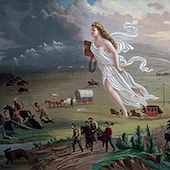
April 8, 2021
Today’s global inequities reflect long legacies of systemically generated and sustained efforts to benefit the few to the serious detriment of the many, often the world’s Black, Brown and Indigenous communities. What historical movements created such drastic disparities? Which social structures continue to uphold or even exacerbate them? What myths of progress abound, and to what ends?

April 5, 2021
This January, Professors Mariko Arata and Miki Yoshimizu from Ritsumeikan University’s College of Gastronomy Management leveraged Northwestern University’s Meridian 180 platform to foster a rich, transnational discussion on "Food and Agriculture Beyond the Pandemic.”
March
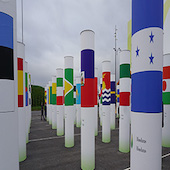
March 18, 2021
Climate change has disproportionately exacerbated many challenges global Indigenous communities face, including political and economic marginalization, loss of land and resources, human rights violations, discrimination and unemployment. Yet Indigenous voices and perspectives have been marginalized in global climate debates and discourse.

March 12, 2021 – from NPR
A decade later the triple disaster, Japan is still recovering from the earthquake, tsunami and nuclear meltdown. Repairing the damage and the public's trust in government could take generations.
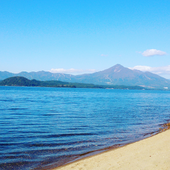
March 12, 2021 – from IFL Science
Today marks the 10-year anniversary of the Fukushima Daiichi nuclear disaster, the most severe nuclear incident since the 1986 Chernobyl disaster. Following a catastrophic magnitude 9.0 earthquake and subsequent tsunami, the Fukushima Daiichi nuclear power plant was heavily damaged, resulting in a plume of radioactive smoke leaking into the sky and surrounding areas. The plant still leaks to this day.

March 11, 2021 – from Northwestern Now
It has been 10 years since a major earthquake and tsunami triggered the Fukushima nuclear accident of 2011. Now, 10 years later, the Japanese town of Namie has been reduced to less than 8% of its original population as residents remain evacuated, said Mayor Kazuhiro Yoshida during his address to a global audience of nuclear experts, which was hosted on March 10 by Northwestern University.
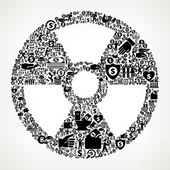
March 11, 2021 – from Bulletin of the Atomic Scientists
In preparedness for the next large scale nuclear disaster, we need forums where ordinary citizens from nations with differing histories of nuclear power can engage directly with nuclear experts from both government and industry as well as representatives of international institutions.
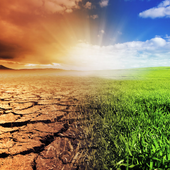
March 11, 2021 – from Northwestern Now
The new "Nuclear Compensation: Lessons from Fukushima" report calls for a more inclusive process for approving nuclear projects and making nuclear energy decisions that gives ordinary citizens a seat at the table.

March 11, 2021 – from Asahi Shimbun
With 10 percent of the world's electricity still dependent on nuclear power, a wide range of experts have come together to analyze compensation issues stemming from the Fukushima Daiichi nuclear accident in "Nuclear Compensation: Lessons from Fukushima."
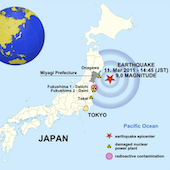
March 11, 2021 – from Bulletin of the Atomic Scientists
At the 10th anniversary of the Fukushima nuclear accident, Northwestern University's Hirokazu Miyazaki shares his perspective on how victim compensation schemes need to change.
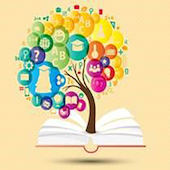
March 11, 2021
How can we "read" or understand policy responses to climate change? We can "read forwards," drawing on scientific evidence and reasoning to project consequences and dictate policy responses. Or we can "read backwards"; we can look to the human beliefs, values, and goals that impute meaning to the world to understand the many lines of evidence and reasoning leading to policy responses. University of Cambridge professor of human geography Michael Hulme will discuss the power of "reading backwards" and the importance of embedding "climate actions" inside human stories, both dominant and marginalized.
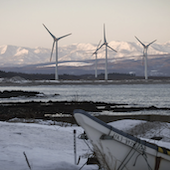
March 11, 2021 – from The New York Times
Northwestern University's Hirokazu Miyazaki comments on the need for a "long-range view on nuclear waste" and "much more democratic way to handle the cost associated with it."
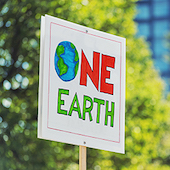
March 5, 2021
Can environmental activism save the world? And, if so, how? As the world continues to grapple with the cascading consequences of our global environmental crisis, the urgent need for collective action has never been clearer. Northwestern Professor of Management and Organizations Brayden King joined Illinois Sierra Club Deputy Director Kady McFadden to discuss the future of environmental activism and the role of activism in shaping global environmental outcomes, including combating climate change, in a Northwestern Roberta Buffett Institute for Global Affairs webinar.
February
February 23, 2021
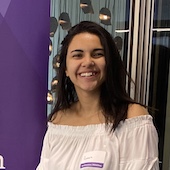
February 16, 2021
Northwestern Buffett recently sat down with GESI alum Rawan Mohamed (McCormick, ’23) to discuss her experiences with the "GESI 2020: Virtual Global Development in Action" program.
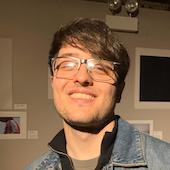
February 16, 2021
In February, Northwestern Buffett sat down with Sami Berisha (Medill ’23) to discuss his experiences navigating the COVID-19 pandemic as an international student.
January
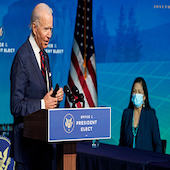
January 22, 2021
Many are hopeful that Joe Biden’s presidency will quickly restore federal climate change measures and catalyze substantial new efforts, such as a "green new deal." Many also hope for the United States to play a leadership role in fueling far-reaching international cooperation around climate change. Are those expectations warranted or unrealistic? What can we expect from the new administration?
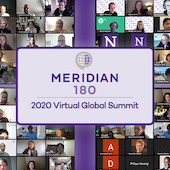
January 22, 2021
The Northwestern Roberta Buffett Institute for Global Affairs convened more than 60 leaders from 18 countries and every sector of society to explore these questions and more for its 2020 Meridian 180 Global Summit. The Summit offered a virtual space for reflection and substantive dialogue on this time of dramatic global change.




























